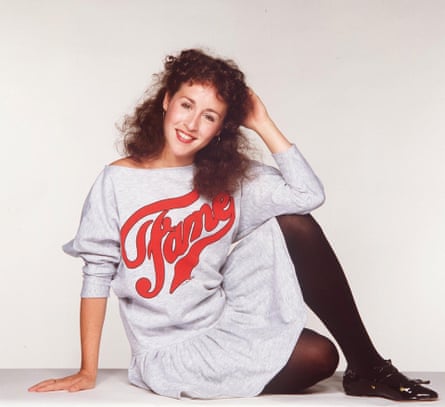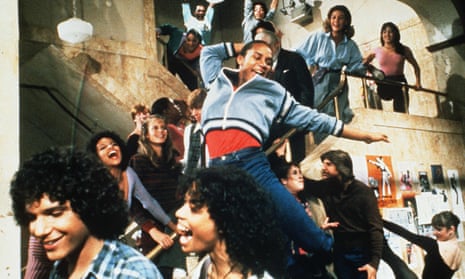Lee Curreri (Bruno Martelli)
I didn’t really want the fame. It was never about the ego for me, just the music. I wanted to be Lalo Schifrin, who wrote the Mission: Impossible theme. I was this misfit little Italian kid who went to a Catholic school in the Bronx and had peculiar interests. When I watched the Carol Burnett Show on TV, for example, I was watching because I loved the way the bandleader Peter Matz orchestrated the music.
When Alan Parker was casting the movie Fame, he was looking for real people rather than actors for most of the roles. He wanted a shy but sensitive real-life keyboard prodigy. I auditioned six times. They’d say: “Say these lines. Now play the piano. Now play the piano and say the lines”. I was playing tarantellas for Italian vacationers in the Catskills when I found out I’d got the part of Bruno. I quit that gig. I was 19.
I loved going on set when I wasn’t filming. I remember one scene in an abandoned old high school in New York, late-afternoon sun streaming through the windows, and the ballerina Hilary, who was played by the ballerina Antonia Franceschi, dancing with Leroy. It was the most beautiful thing.
When the spin-off TV series was being cast, TV then wasn’t highly regarded, so quite a few who had been in the film didn’t come on to the show. I did, because I had a plan. I would write songs and develop my musical skills. Being on camera was never the thing for me. We were worked hard but paid not very much. It wasn’t Dickensian, but most of us were young kids who needed better representation. I know I needed someone in my corner and I didn’t really have anyone, especially when we moved the production to LA from New York.
We’d start each day at 7am and finish at 7pm. A lot of it was waiting for shots to be set up. I was writing songs at 2am in the morning. Around that time, drum machines, sampling and synths were really taking off so I had this idea of learning as much as I could about all that, and I became a one-man band, writing drums, bass, timpani, brass, the whole orchestra. As well as writing songs for Fame, I was asked to write music for NBC’s Saturday morning cartoon shows. I sent them a demo, and who should show up to orchestrate it but Peter Matz? He took my crummy little demo and orchestrated it for a live orchestra at the NBC studios. I was in heaven.
I was 23 when I left the show. At the time, the network decided not to syndicate it any more in the US, but it was doing so well in the UK and Italy, they continued making it for export. I got a gig writing music for a TV movie with Mickey Rooney. That was the start and I really took off from there – working in music for TV shows and films just like I wanted to do.
Valerie Landsburg (Doris Schwartz)
I was understudying on Broadway when the movie came out in 1980 and I went to a midnight screening. I remember seeing Lee on screen and thinking: “I’m gonna be friends with that guy some day.” Two years later I get a call – they’re doing the TV series. I ended up getting the role of Doris Schwartz. I was 23 and had been in movies, and I was the oldest in the show. Sure enough, Lee and I became friends. We even shared an apartment and drove to work together.

Doris was essentially the girl who did the exposition. She wasn’t the star. I was like the friend of the lead. I was the person who’d say “I feel so bad for you” or “Is there any more pizza?” A lot of guys my age who knew they were gay but felt they couldn’t tell anybody identified with Doris because she didn’t have a boyfriend. There were Doris girls too. I’ve cried with people who’ve come up to me and said “You’ve saved my life. Because you were doing what you were doing, I didn’t jump off a bridge.” One day, I was the last person to get on a plane and the woman stamping the tickets put her hand on top of mine and said: “I love you.”
We worked really hard. If you weren’t acting you were rehearsing the dance numbers and if you weren’t doing that you were doing a demo recording of the big number that you were going to sing at the end of the series.
If you read the old reviews of the series, nobody talks about race. Nobody really talked about Leroy being black. The truth was we were one tribe; young people who wanted to be performers. It was a family. I loved the whole experience. Lee wrote music for it, I wrote an episode of the show. It was like having the best performing arts and film school you could’ve ever had.

Comments (…)
Sign in or create your Guardian account to join the discussion